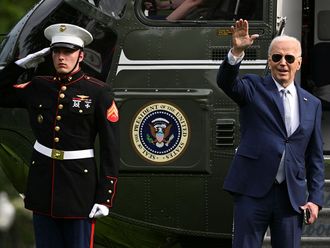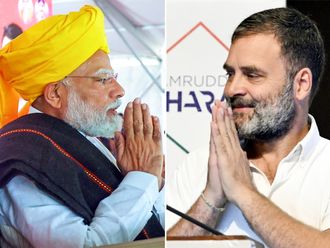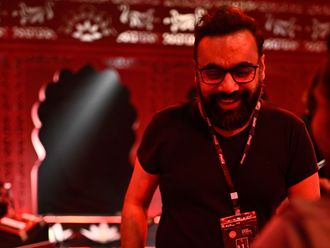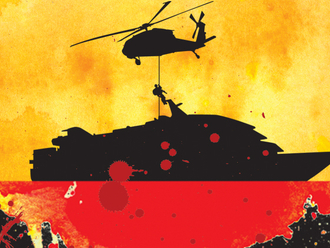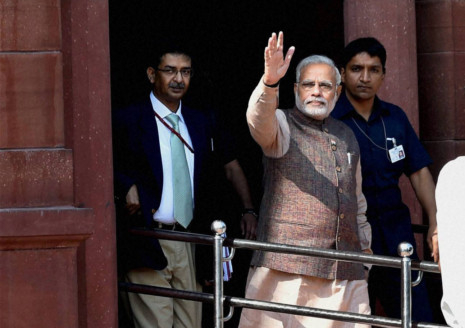
I became a fan of Arun Shourie, the Indian Express editor-turned-Bharatiya Janata Party (BJP) ideologue, because of his follow-up articles after I broke the Bhagalpur blindings story — an expose of policemen pinning petty criminals to the ground and pouring acid into their eyes in a Bihar town to improve law and order — in Sunday magazine. My investigative piece won a United Nations award and resulted in Gangajal — a Bollywood film directed by Prakash Jha starring Ajay Devgn.
A bigger reward was that my scoop made our ‘Iron Lady’ Indira Gandhi cry in parliament. Barely out of college, I was all of 21 years old; Shourie was 39 and in great form. In a manner of speaking, I lit a spark which he fanned into a roaring fire roasting the establishment!
Not surprisingly, for three decades, I have devoured every word Shourie has written — although the man I admired turned into a Hindu hardliner. But I do not hold that against him. He was one of the top ministers in former prime minister Atal Bihari Vajpayee’s government from 1998 to 2004. And Narendra Modi, the man of the moment, consults him.
Significantly, Shourie — one of my heroes — once wrote: For all the news, read the old newspapers. I don’t remember exactly when in terms of year, month or occasion, but the advice struck me. He probably rephrased the Karl Marx quotation “History repeats itself”, but dramatised it and imparted a sense of urgency to the counsel.
Now let me come to the point. I was reminded of Shourie’s mantra — for all the news, read the old newspapers — when Modi threatened to deport Bangladeshi migrants after becoming the prime minister, as he targeted only Muslim Bangladeshis whom he branded infiltrators; Hindu Bangladeshis, according to Modi, are genuine refugees who India welcomes. Modi specifically said that Bangladeshis who worship goddess Durga deserve Indian hospitality but those who do not will be expelled. He also called for “stronger border management” — officialese for telling the para-military Border Security Force (BSF) to shoot Bangladeshis.
If we press pause and rewind — as per Shourie’s advice — we can see for ourselves what happened when the BJP declared a war against “infiltrators” from 1998 to 2004 during its first stint in power. BJP had announced that 20 million Bangladeshis were living illegally in India, posing a threat to national security. And Operation Push Back and Operation Flush Out were launched to round up thousands of so-called illegal Bangladeshi migrants from various cities and force them into Bangladesh at gunpoint.
However, the exercise fell on its face as Bangladeshi troops successfully halted India’s efforts; BSF and Bangladesh Rifles (BDR) even exchanged fire over the controversial deportations. All that the BJP’s muscle-flexing achieved was embittering relations between BSF and BDR, besides antagonising two successive Bangladeshi PMs — Shaikh Hasina (1996-2001) and Khaleda Zia (2001-2006). The futile operations also angered ordinary Bangladeshis as well as key institutions like defence and intelligence agencies to the great delight of Pakistan’s Inter Services Intelligence (ISI) and Indian rebel groups like ULFA [United Liberation Front of Assam] looking for safe haven across the border.
Before Modi launches another edition of Operation Push Back and Operation Flush Out, he should heed Shourie’s advice and read old Indian and Bangladeshi newspapers — Modi just does not seem to realise how horribly things can go wrong when a small neighbour is resentful of Big Brother. A few examples — in chronological order:
April 18, 2001: On that black day, BDR killed 16 BSF soldiers at Boraibari and mutilated the corpses. Dhaka released photographs of the body of a slain BSF soldier carried by villagers with his legs and hands tied to a bamboo pole as if he was an animal who had been hunted down. Shaikh Hasina, heading the Awami League government, flatly refused to come to New Delhi to meet Vajpayee to de-escalate tension. April 1, 2004: There was nothing funny about the seizure of 5,000 automatic rifles, 300 rockets and 1.14 million bullets from a Chittagong warehouse. Imported from China by fugitive ULFA leader Paresh Barua with the connivance of Bangladesh’s Directorate General of Forces Intelligence (DGFI) and National Security Intelligence (NSI), the arms were destined for India. Fortunately for India — and unfortunately for Barua and his Bangladeshi and Pakistani accomplices — the consignment was seized by the local police and reported in newspapers before it could be hushed up by higher-ups in Dhaka.
September 15, 2005: Rupa Chakrabarti, wife of India’s Deputy High Commissioner Sarbajit Chakrabarti, was manhandled by Shah Alam alias Ahmad Akbar Sobhan, chairman of Bashundhara Group, in Dhaka. The tycoon pulled her out of a Mercedes with diplomatic numberplate assigned to India. New Delhi repeatedly demanded his arrest, but shielded by then prime minister Khaleda Zia, he was not touched.
Although BJP was voted out in 2004, relations with Bangladesh were strained for much longer as borne out by the daylight attack on the diplomat’s wife. Modi should mull over the incidents I have raked up to illustrate the depths to which bilateral relations had nosedived.
I would advise Modi to start by setting his own house in order. How about prosecuting BSF officials deployed in the Bangladesh border who have built palaces from the returns of cattle smuggling and human trafficking? And revoking the multiple-entry visa of Shah Alam who now counts India’s current High Commissioner, Pankaj Saran, among his close friends? Corruption, it seems, is not the prerogative of men in uniform; it has spread to the foreign service!
S.N.M. Abdi is a noted Indian journalist and commentator.



